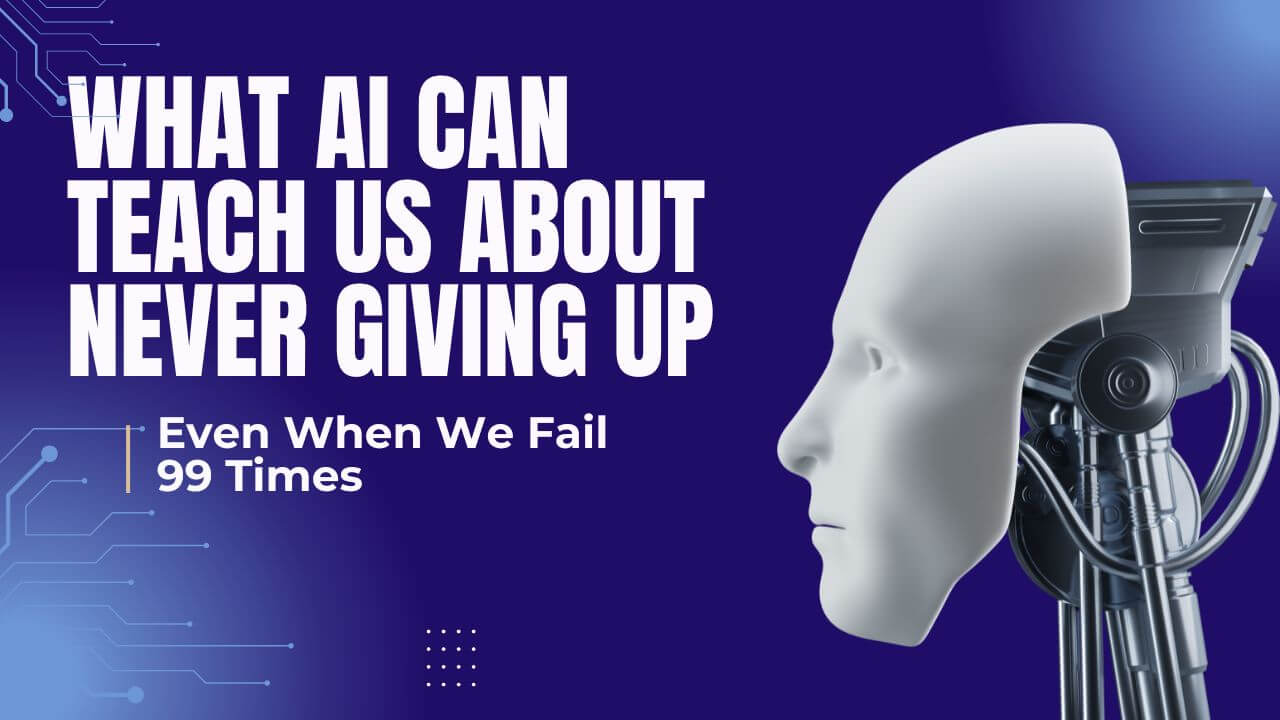AI models fail millions of times before getting things right. Every algorithm, every prediction, every breakthrough we see today was born from trial, error, and relentless adjustment. AI never quits—it refines, learns, and evolves until it succeeds.
But here’s the real question: What if we lived our lives the same way?
Failure Isn’t the End—It’s Just Another Iteration
In the world of AI, failure is not a roadblock—it’s data. Every wrong answer, every miscalculation, every setback isn’t seen as defeat, but as valuable feedback. AI doesn’t dwell on mistakes; it adjusts and tries again, smarter and stronger than before.
Now, apply that mindset to life.
🔹 What if instead of fearing failure, we studied it?
🔹 What if instead of stopping at rejection, we iterated our approach?
🔹 What if every setback became fuel for something better?
Imagine treating personal struggles like an AI model in training—every failed attempt just refining us for success.
Why Live Exists to Fail—And Keep Going
At AIWhyLive.com, failure isn’t something to fear—it’s proof that we’re pushing limits. The very essence of Why Live is about embracing every mistake, every challenge, every doubt, and choosing to move forward anyway.
🚀 We experiment—trying AI strategies, writing, analyzing, and sometimes messing up spectacularly. 🚀 We adjust—learning what works, fixing what doesn’t, and never seeing failure as final.
🚀 We grow—because innovation, creativity, and breakthroughs only happen when we refuse to quit.
This journey wasn’t always smooth. Why Live itself began with uncertainty—an uphill battle filled with doubts about whether AI could truly redefine how we see the world. But from a doomed beginning came an unstoppable vision, proving that AI doesn’t just transform technology—it transforms mindsets. (More on that story here.)
Just like AI, we are built for resilience.
You Are Your Own Algorithm—Keep Training It
If AI can fail millions of times and still succeed, then what excuse do we have for giving up after just a few setbacks?
Every challenge teaches us something. Every rejection reshapes our approach. Every failure is just another step toward success.
So train your mind like AI trains its models:
✔ Adjust, refine, and retry—because failure isn’t defeat. It’s just learning.
✔ Take setbacks as signals, not stop signs—they tell you what needs improvement.
✔ Become relentless—because true success belongs to those who refuse to quit.
AI never gives up—and neither should you.







